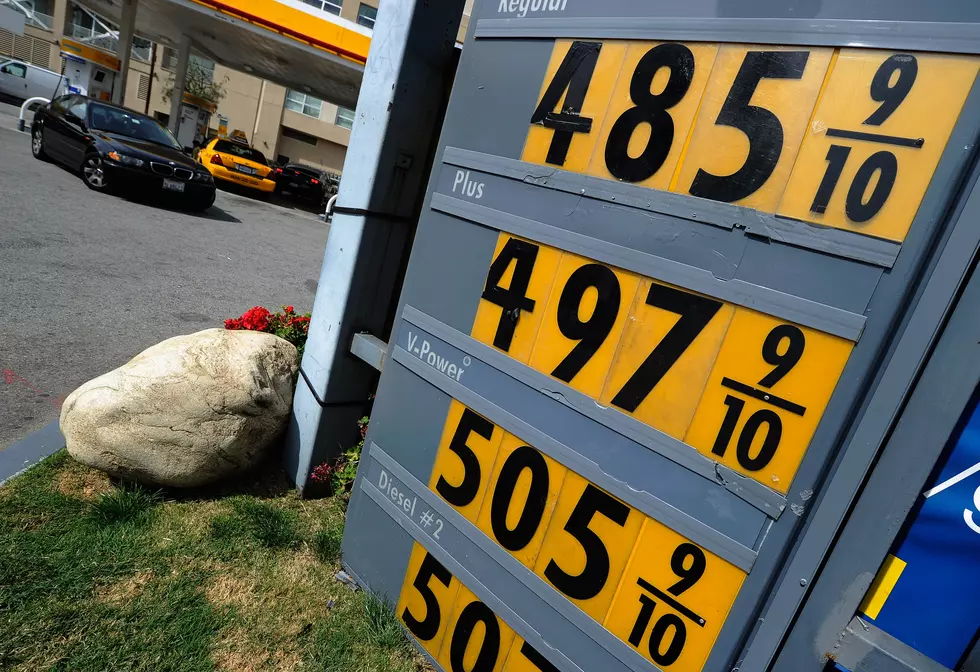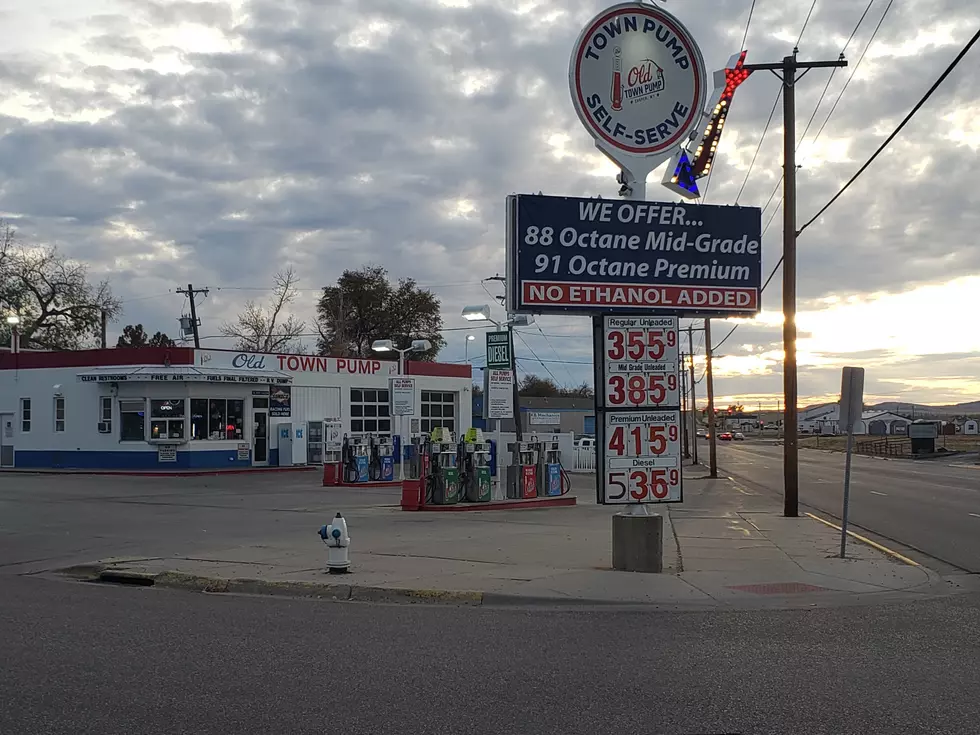
Gas Prices Continue Falling Across Wyoming and Nationally
Average gasoline prices in Wyoming have fallen two cents in the last week, averaging $4.81 a gallon Monday, according to GasBuddy surveys.

Prices in Wyoming are 8.5 cents higher than a month ago and $1.44 higher than a year ago, with the cheapest station in Wyoming being priced at $4.24 a gallon Sunday while the most expensive was $6 a gallon, compared to $6.10 a gallon from a week ago.
Natrona County is currently the cheapest county in the state at an average gas price of $4.58 a gallon on Monday, a decrease of five cents from the previous week, while Teton County is the most expensive at an average of $5.32 a gallon.
The national average price of gasoline has fallen 12.8 cents in the last week, averaging $4.66 a gallon Monday, with the national average down 34.4 cents from a month ago and $1.54 higher from a year ago.
Wyoming is the 14th most expensive state in the country, while South Carolina is the cheapest average state on Monday at $4.14 a gallon while California continues to be the most expensive state at $6.08 a gallon, down 12 cents from the previous week.
Crude oil prices have increased $3 in the past week, up to $102 a barrel, down from a recent high of $122 on June 8, while the price of diesel sits at $5.65 a gallon, having fallen 8.5 cents nationally in the past week.
Patrick De Haan, head of petroleum analysis at GasBuddy, said:
"The national average has declined for 27 days straight, or four weeks, the longest decline in average gas prices since the pandemic started in 2020. Average gas prices are down nearly 40 cents, with Americans shelling out $140 million less on gasoline every day than they did a month ago," De Haan said. "We may see the trend last a fifth week, as long as oil prices remain cooperative and don't surge beyond $105 per barrel, and as long as refinery production of gasoline remains strong. But we're not completely out of the woods yet - we could also see a sharp reversal in the decline. There remains risk of a spike in prices that could send us to new record levels in August, should any disruptions occur. It could be a wild ride, but for now, the plummet at the pump shall continue."
7 Trails To Hike In Central Wyoming
More From K2 Radio









